LGBTQ+ comedians on how transphobia poisoned comedy – and how they’re moving on from the bigots
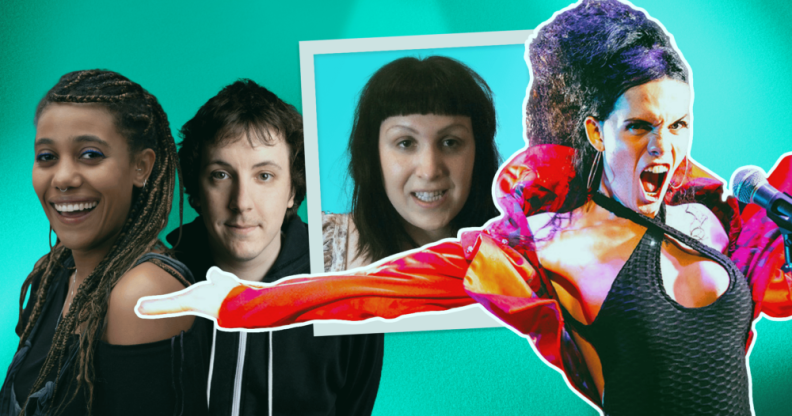
Kate Cheka (L), Tom Mayhew, Jen Ives and Jordan Gray (R). (Supplied)
In recent years comedians like Ricky Gervais and Dave Chappelle have become the spearheads of the “anti-woke” comedy movement, particularly targeting trans and non-binary comedians.
In the past week, comedian Jerry Sadowitz had his show pulled from the festival after complaints of “extreme” racism, homophobia, transphobia and misogyny. It didn’t sound very funny, at all.
The comedy world has been navigating headline after headline debating whether “punching down” to minorities is acceptable, and as the debate continues, it’s become a testing ground for what free speech and freedom of expression means in a democratic society.
But that can cause problems for rising comedy stars who belong to the groups being targeted by the big names.
Trans comedian Jen Ives has been doing comedy for nearly six years (and is currently performing at the Edinburgh Fringe) – and she’s noticed how attitudes have developed towards the trans and non-binary community in that time.
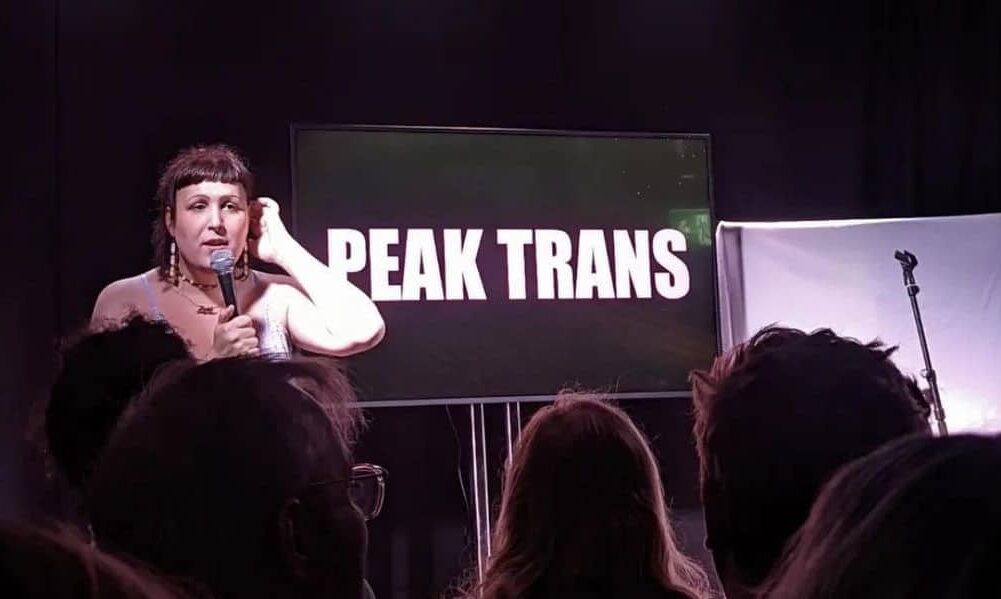
Jen Ives performing at the Edinburgh Fringe Festival 2022. (Instagram/Jen Ives)
“When gigging in Brighton, or certain parts of central London, performing as a trans person can be liberating,” she tells PinkNews.
“But in other parts of the country – or even just different sorts of clubs – sometimes you are doing heavy lifting to just explain who you are to audiences who are hostile to anything that doesn’t fit their rigid definition of what a ‘comedian’ ought to look like.”
This is an experience echoed by comedian Kate Cheka, who has navigated the comedy scene for the past four years as a Black woman questioning western gender norms.
“On the whole I try to avoid gigs where I think people won’t like me,” she tells PinkNews.
“I don’t get mad if someone wants to laugh at what I think is a horribly offensive joke. That’s your humour but just stay away from me.
“You want a supportive audience and you want an audience that gets you and likes you. But of course there have been not great experiences. I think anyone who is not a cis straight man would say they have pretty similar experiences in comedy.”
But have conditions got worse for queer, trans and non-binary comedians in recent years?
“You wouldn’t be blamed for thinking that,” says Jordan Gray, a trans comedian who is The Telegraph’s number one critics comedy choice for this year’s Fringe.
“The online algorithms that shape our social lives tend to push that narrative. It is often horrible out there for trans and non-binary people – but it is also disproportionately reported.
“This vicious cycle leads to a heightened fear from us, and a heightened complacency from our detractors, who begin to assume it’s ok to take the p**s, because this is just ‘normal’.”
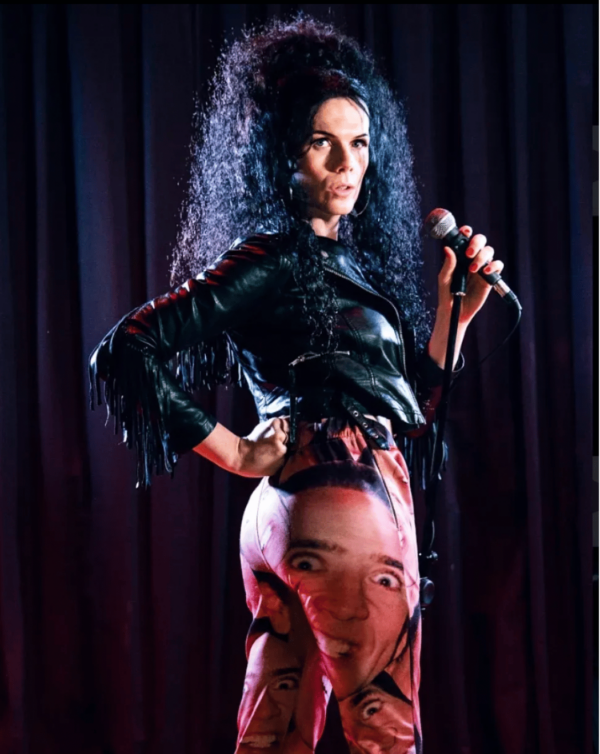
Jordan Gray. (Dylan Woodley)
Jen Ives agrees, noting that across the UK, trans people’s rights are under attack.
“Anti-trans hate groups are gaining legitimisation and support from our government, and trans people are feeling a lot more unwelcome in public spaces.
“Our rights are routinely being stripped away in favour of regressive, conservative values and all this ridiculous fear mongering about us in the media has a profound, accumulative psychological impact.”
Tom Mayhew – a working-class queer comedian with a pro-trans Radio 4 series, Tom Mayhew is Benefit Scum – says he works to ensure the safety of any trans and non-binary comedians he’s working with.
“I think nowadays I would always be looking out for trans and non-binary comedians to make sure they get home safe more than I would have been a few years ago,” he tells PinkNews.
He believes that at the same time trans and non-binary comedians have become more outspoken and are “taking no nonsense”, transphobes have also grown more empowered.
Cheka says the mainstream media has fuelled the conversation around transphobic comedians as their jokes would never have reached such enormous audiences without the internet being what it is today.
“You’re hearing it because it’s coming up online, or there’s videos of it. And we’re consuming comedy in a different way.”
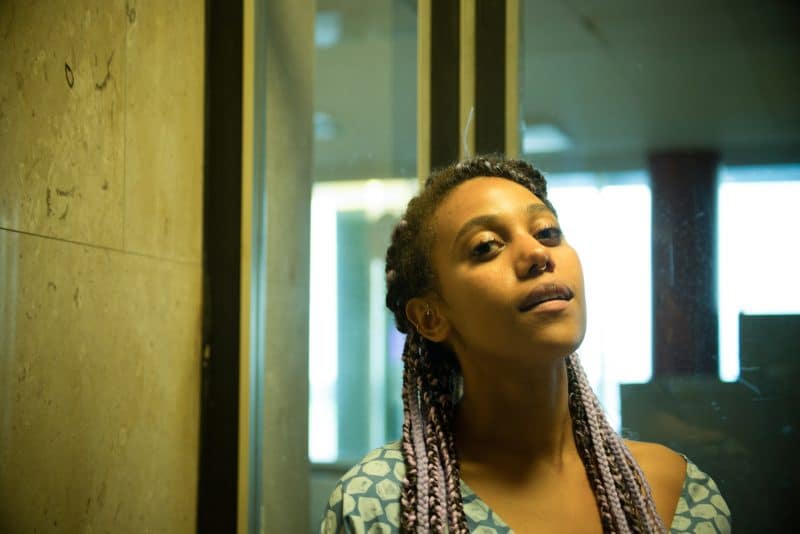
Kate Cheka. (Supplied)
Touching on the Gervais and Chappelle controversies, Ives says: “I think Ricky Gervais’ latest special was one of the worst hours of stand up comedy I’ve ever seen.
“It capitalised not only on lazy, unintelligent tropes about trans people, but it also revelled in aimless, edgelord racial shock to signal boost his undeserved credit as a ‘real’ stand up comedian.”
“Being vocal about how much you disagree with Gervais or Chappelle isn’t ‘wokeism’ it’s actual, true free speech. And if they can’t handle that, maybe stand up comedy isn’t the field for them.”
Cheka agrees saying: “I don’t understand these people, no one’s cancelling them.
“They are like: ‘Oh, I’ve been cancelled.’ And then they’ll naturally end up with an audience that is more the incel side of things. Because those are the people that say: ‘Yeah, you’re right. Why don’t we get to just be horrible to people?'”
‘Gentlemen, theydies and gentlethems’
Speaking about what more people can be doing to support trans and non-binary comedians, Gray says: “I’ll tell you one cool little hack I’ve learned – you can open with ‘hey folks’ instead of ‘ladies and gentlemen’. Sounds daft to a certain type of ear, but it includes non-binary people in the welcome.
“Personally I tend to open with: ‘Ello ladies and men, theydies and gentlethems, eithers, neithers, and all you beautiful little something-in-betweeners.'”
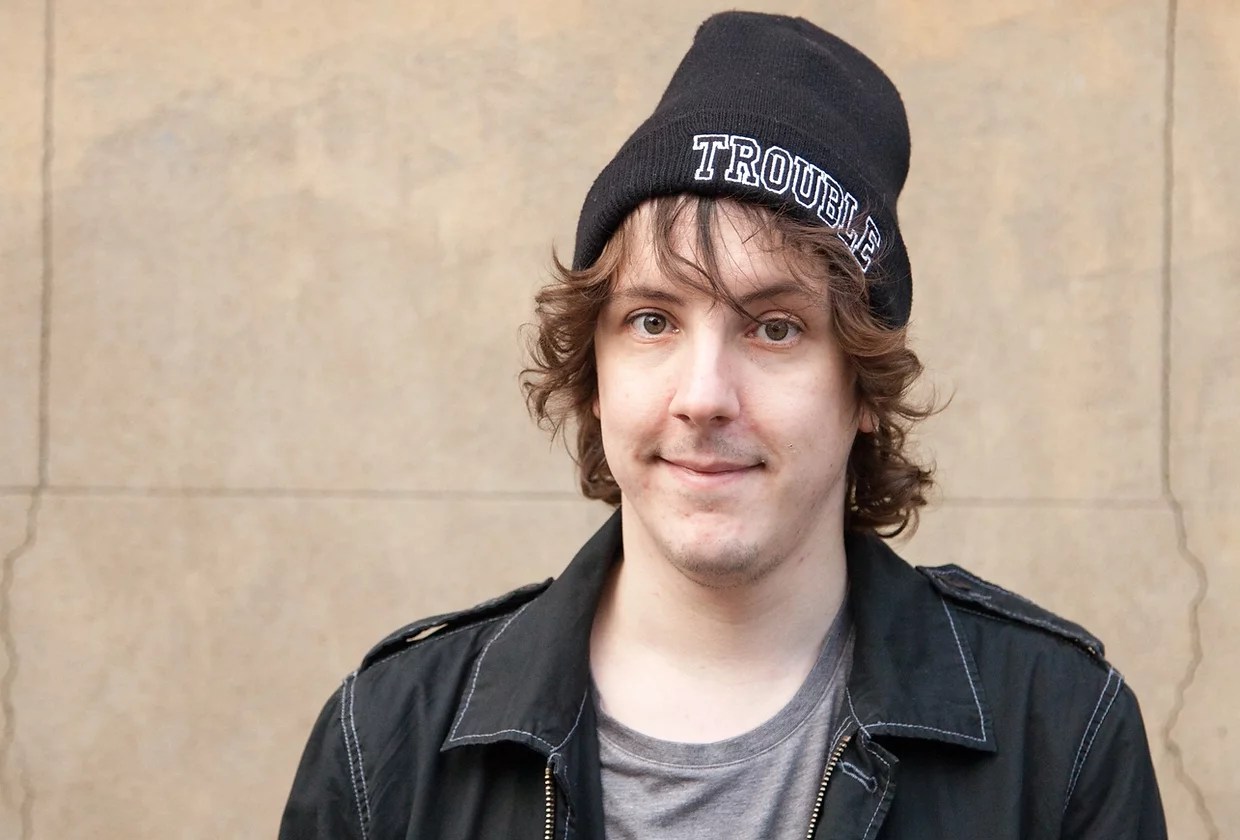
Tom Mayhew. (via Tom Mayhew official website)
Jen Ives wants an end to “tokenistic” bookings and, quite simply, more bookings for trans comedians.
“Mainly, I’d like to see more trans and non-binary comedians being given spots at mainstream clubs – on lineups together,” she says.
Cheka believes it can be as simple as booking someone “who is nice and not an a**hole” and pointed to Kemah Bob’s FOC it up Comedy Club as an example of a safe space, which encourages non-white, non-cis men on their journey into comedy.
Mayhew says it all comes down to not punching down at minorities – for straight and queer comedians.
“If you are an ally, you should not be laughing at [discriminatory] material,” he says, adding that comedians should be writing material that is “explicitly pro-trans”.
Despite what it looks like both Mayhew and Gray, believe the next generation of comedy looks bright.
“I’d wager a higher majority of comics are left leaning compared to general society,” Gray says.
“Comedy (of this generation) tends to be far more open and welcoming of trans and non-binary people.”

